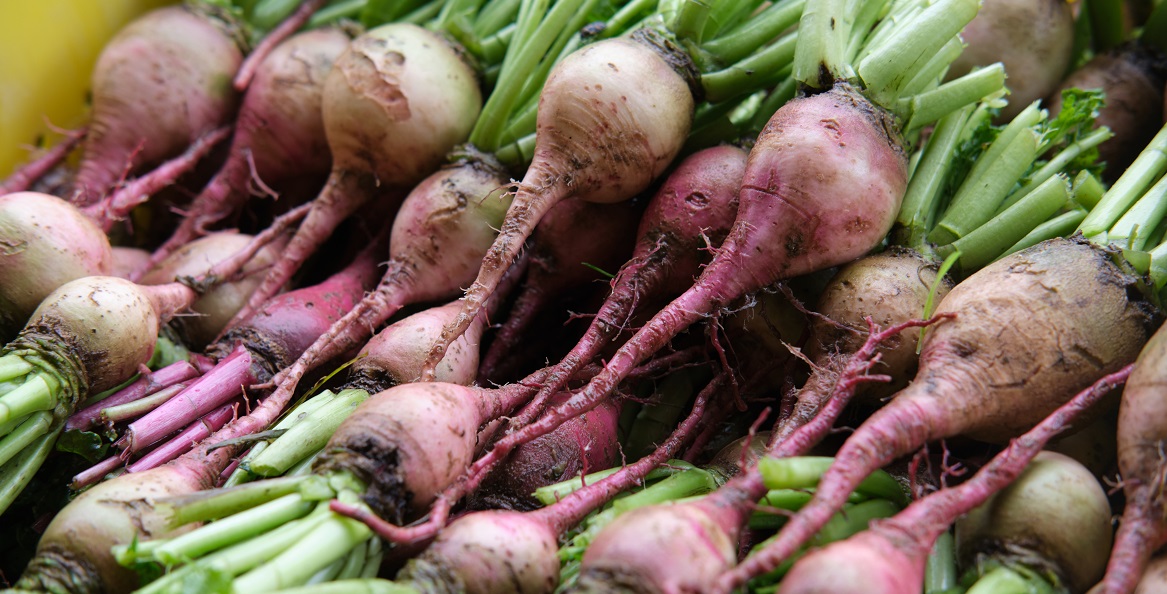The snow may be blowing and the temperatures may be freezing, but cozying up this Valentine's Day with some great food and a great flick is a sure way to warm the heart. Farming is a labor of love, and regenerative practices—like rotational grazing, cover crops, and streamside forest buffers—are one of the most important ways we can reduce pollution and show our love for the Bay. That's why we checked in with some of CBF's agricultural experts to share their favorite films about farming (and delicious Bay-friendly foods to pair with them). Every day, these folks work to help farmers implement practices on their land that help improve soil health and water quality. CBF even operates our own Clagett farm entirely with organic, regenerative practices to show how they work in the real world. There's so much that happens beneath the surface—grab your favorite local food guide and dig in!
Elizabeth Beggins
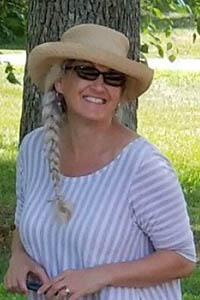
Elizabeth Beggins
- How do you help save the Bay with the Chesapeake Bay Foundation?
- My role, as Maryland Agriculture Outreach Specialist for the Million Acre Challenge, is to connect farmers and stakeholders with the resources needed to build a million acres of healthy soils on Maryland farms by 2030.
- What is your favorite movie about farming—especially regenerative agriculture, soil health, rotational grazing, local food, or other environmentally and Bay-friendly farming practices?
- I recommend Living Soil. Since it's only an hour long, folks will have plenty of time afterward to prepare a meal or take in a longer, romantic flick (or both). This film is a deep dig into what the soil has to offer us as a civilization and why it's so important that we support it in every way we can.
Find it streaming on Vimeo from the Soil Health Institute. - Why do you love it?
- The movie is the real deal. Unlike other recent, inspiring films (that do have their place, for sure!) this one isn't trying to be glamorous. It's farmers from all over the nation explaining why the health of our soils matters. And, towards the end, it's all about Maryland!
- What Bay-friendly food do you recommend having with it?
- Just one? No way! To truly experience the power of healthy soils, you've got to make a meal! Try a sheet-pan dinner: Roasted, locally-produced, spatchcocked chicken with root vegetables (carrots and turnips make a nice combo). Add some potatoes if you can find them, or winter squash. Serve with a marinated, raw kale salad. Adult beverage optional but recommended.
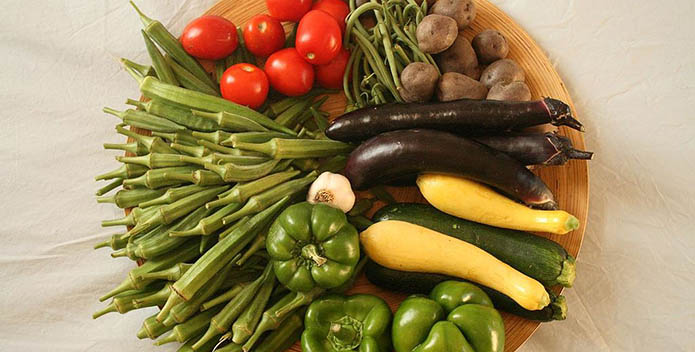
Wikimedia Commons
Kelly O'Neill
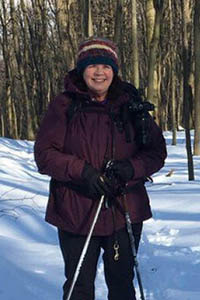
Kelly O'Neill
- How do you help save the Bay with the Chesapeake Bay Foundation?
- As the Agricultural Policy Analyst for CBF's Pennsylvania office, I advocate for financial and technical assistance to help farms keep soil and nutrients on the land and out of water.
- What is your favorite movie about farming—especially regenerative agriculture, soil health, rotational grazing, local food, or other environmentally and Bay-friendly farming practices?
- Kiss the Ground highlights how regenerative agriculture can improve water quality, produce healthy food, improve soils, stabilize our climate, through plant diversity, living plants throughout the year, composting, and grazing livestock on perennial forages.
Find it streaming on Netflix and Vimeo, or free for teachers and students. For rent on Apple TV. - Why do you love it?
- With beautiful footage from around the world, the movie inspires optimism and actions that we all can take. Grass-fed livestock are a key component of a regenerative agricultural system, and they also provide meat and dairy products that have improved fatty acids that enhance human health, potentially reducing the risks of illness, including heart disease. What could be better for Valentine's Day?
- What Bay-friendly food do you recommend having with it?
- Steak or lamb chops from grass-fed animals.
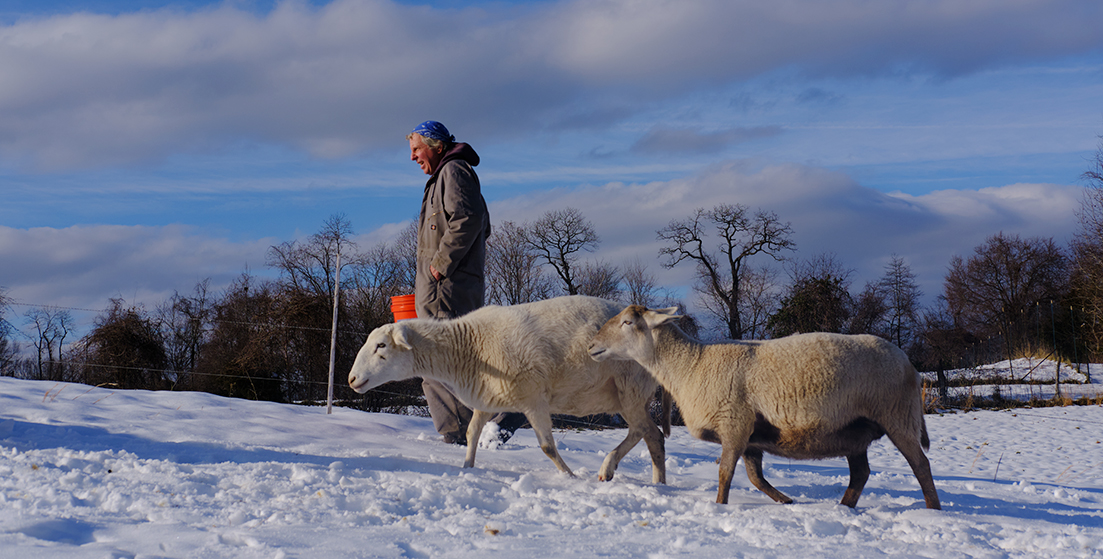
Clagett Farm Manager Michael Heller tends to the farm's sheep. Rotating livestock through grass pastures, a practice called rotational grazing, helps build healthy soils that retain water and trap nutrients.
Jared Planz / CBF Staff
Jared Planz

Jared Planz
- How do you help save the Bay with the Chesapeake Bay Foundation?
- I work as the Assistant Vegetable Manager for CBF's Clagett Farm and I get to grow food for a wonderful community and play around in the soil most days.
- What is your favorite movie about farming—especially regenerative agriculture, soil health, rotational grazing, local food, or other environmentally and Bay-friendly farming practices?
- My movie recommendation would be Fantastic Fungi by Louis Schwartzberg, a movie about the role that fungi play in regenerating the world.
Find it streaming on Prime Video, Apple TV, Google Play, and Vudu. - Why do you love it?
- The movie shows the interesting connection between humankind and fungi and highlights the importance the fungi play in the natural world. As a farmer, I find myself fascinated by the world of fungi and the many roles that it takes on.
- What Bay-friendly food do you recommend having with it?
- Shiitake mushrooms that are cultivated by a local farm.
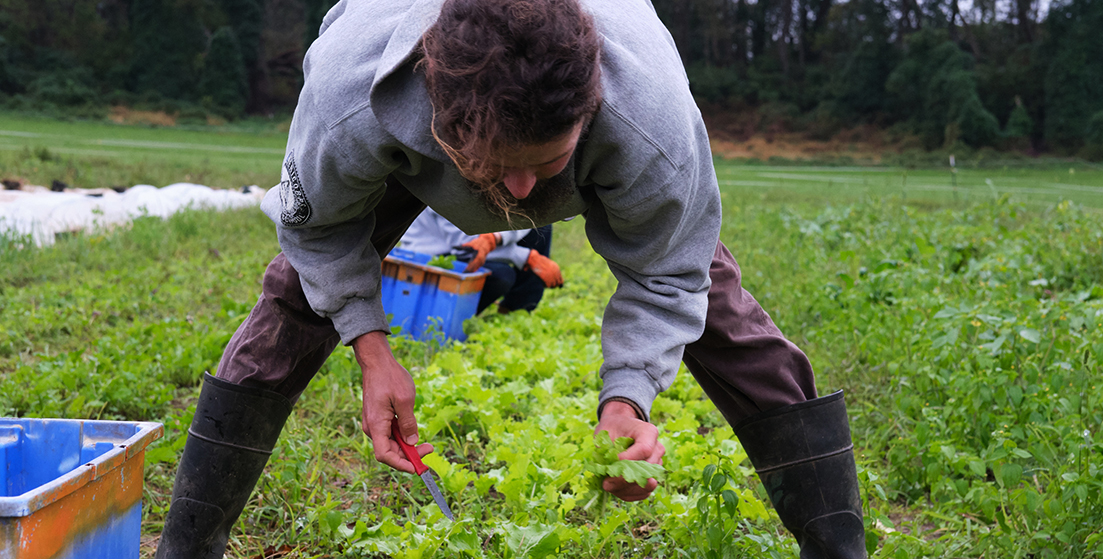
A worker harvests lettuce at CBF's Clagett Farm in Upper Marlboro, Maryland in 2019.
Jared Planz / CBF Staff
Jackie Shannon
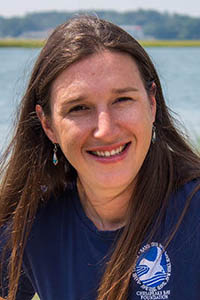
Jackie Shannon
- How do you help save the Bay with the Chesapeake Bay Foundation?
- I am the Virginia Oyster Restoration Manager and I work with many dedicated volunteers to grow and transplant millions of oysters into lower Bay tributaries each year.
- What is your favorite movie about farming—especially regenerative agriculture, soil health, rotational grazing, local food, or other environmentally and Bay-friendly farming practices?
- The film, Journey on the Chesapeake by director and producer Dave Miller.
Find it streaming from Miller Productions of Virginia. - Why do you love it?
- The film features stories from watermen, cooks, oyster farmers, and other locals living near the Rappahannock and York Rivers. It is hosted by Chef Win Goodier, founder of Ware River Culinary Company in Gloucester, Virginia.
- What Bay-friendly food do you recommend having with it?
- Raw local oysters with mignonette and seasonal seafood bisque
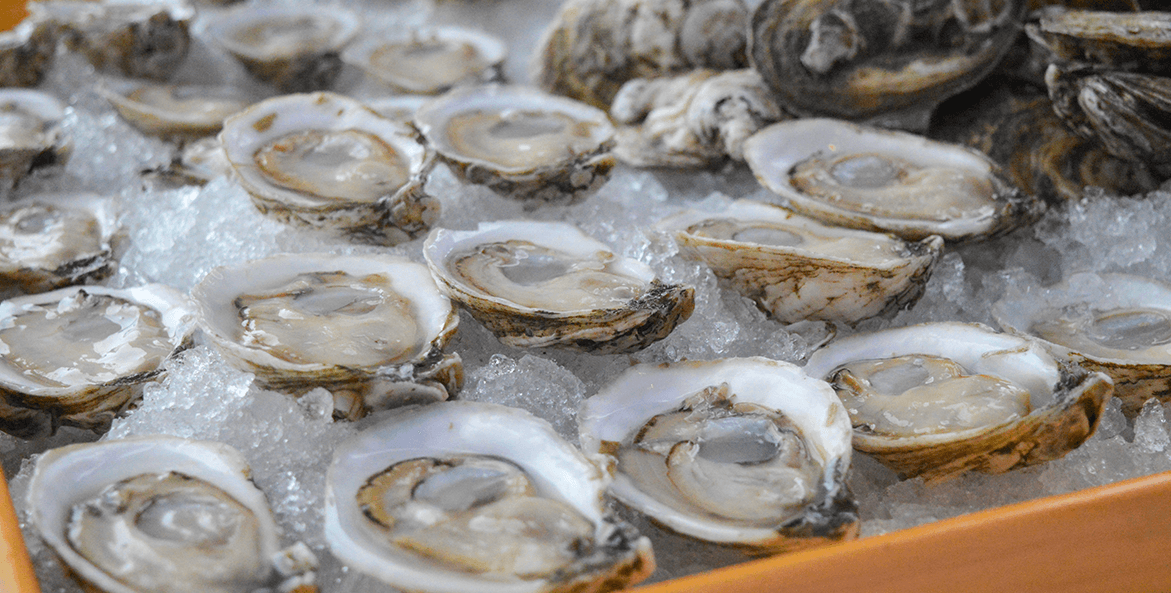
Oysters on the half shell ready to eat!
Rebecca Long
Carrie Cochran Vaughn
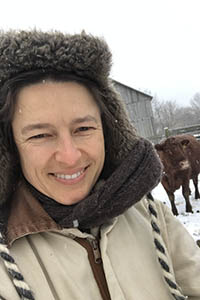
Carrie Cochran Vaughn
- How do you help save the Bay with the Chesapeake Bay Foundation?
- Carrie was the Vegetable Production Manager at CBF's Clagett Farm for many years, where she grew organic veggies for our Community Supported Agriculture (CSA). She is now Farm Director for Building Bridges Across the River in Southeast D.C.
- What is your favorite movie about farming—especially regenerative agriculture, soil health, rotational grazing, local food, or other environmentally and Bay-friendly farming practices?
- My favorite is an old French movie called Jean de Florette. The protagonist is a new farmer who brings lots of clever techniques for growing healthy, diverse crops. He is undermined by his jealous, greedy neighbor who schemes to ruin him by hiding the spring on his property.
Find it streaming on Prime Video. - Why do you love it?
- I love the water-related drama of the movie, because drought is such a poignant source of misery for farmers, me among them. And this idea that you need lots of grueling work AND good weather AND a supportive community AND ingenuity to make a farm succeed really hits home for me.
- What Bay-friendly food do you recommend having with it?
- I would prepare a butternut squash soup to go with it. You can make it classically French, with a mirepoix of onions, garlic, celery, lots of butter, and also be sure to use a great stock and some aromatic herbs, like sage. It's also great if you toss in some creamy blue cheese. Warm soup is perfect for this wintry weather, and winter squash is a local vegetable that is at its peak flavor this time of year.
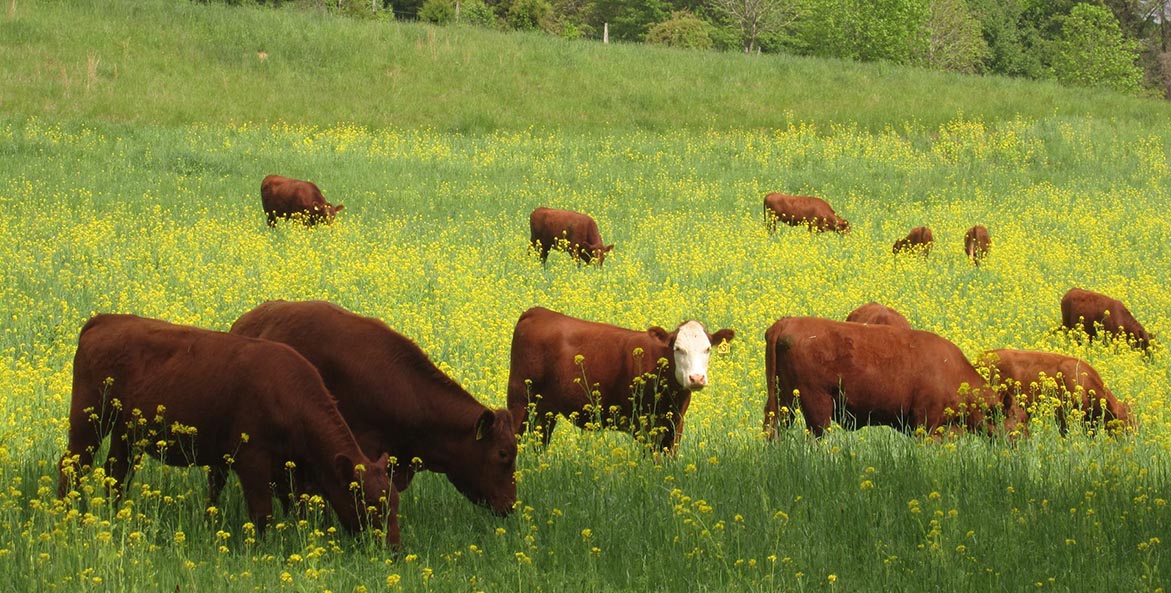
Rotationally grazing livestock on grass pastures enhances soil health, protects and improves water quality, and contributes to a farm's economic viability.
Deborah Starobin Armstrong
Rob Schnabel
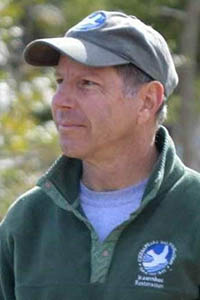
Rob Schnabel
- How do you help save the Bay with the Chesapeake Bay Foundation?
- I am the Restoration Scientist for CBF's Maryland office, primarily working with farmers throughout the state on farm stewardship projects. Most of these projects consist of regenerative agriculture practices that improve water quality, sequester carbon, improve soil health, and make their farms more economically and environmentally viable.
- What is your favorite movie about farming—especially regenerative agriculture, soil health, rotational grazing, local food, or other environmentally and Bay-friendly farming practices?
- Kiss the Ground is a recent (September 2020) regenerative agriculture documentary that illustrates how agriculture can be a solution as we address climate change. It showcases agriculture's impact during the Dust Bowl and how far we have come in learning about soil biology and the importance of farming with nature for the Planet and healthy food. The movie is narrated by Woody Harrelson and has some great cinematography.
Find it streaming on Netflix and Vimeo, or free for teachers and students. - Why do you love it?
- As a scientist I attempt to share and explain how healthy soils are key to the future of farming, healthy food, and a healthy planet. This film is good for all audiences and makes it easy to understand how agriculture impacts the planet but demonstrates solutions to these problems. My regenerative agriculture hero, Gabe Brown, is featured in this film. I met him when CBF brought him to Maryland a few years ago to keynote our annual grazing conference for 200 farmers. In the film, he shares his life's journey, going from conventional agriculture to regenerative, no longer tilling the land and using pesticides. His soil and the farm come alive, making farming fun and profitable again. After the movie, pick up his book Dirt to Soil: One Family's Journey into Regenerative Agriculture.
- What Bay-friendly food do you recommend having with it?
- I recommend a grass-based, pastured item from a local farm listed in the Buy Fresh Buy Local Chesapeake Local Food Guide. I'll be having pork chops (pastured pork), sweet potatoes, brussel sprouts and a monster spinach salad—all from my winter CSA (Community Supported Agriculture) share from Open Book Farm in Middletown, Maryland.
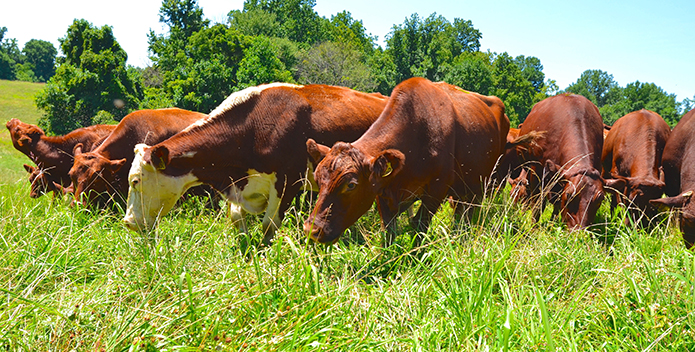
Best management practices, such as grazing cattle, improves local water quality by reducing erosion and fertilizer use.
Julia Poust
Bonus
This Valentine's Day, check out this video for more local food loves from CBF's Pennsylvania staff!

